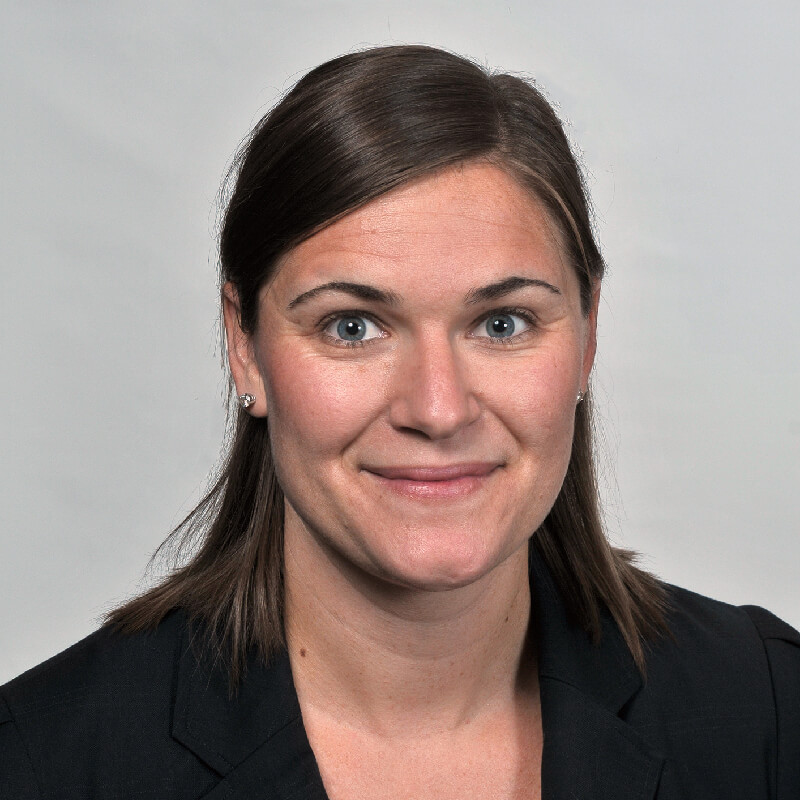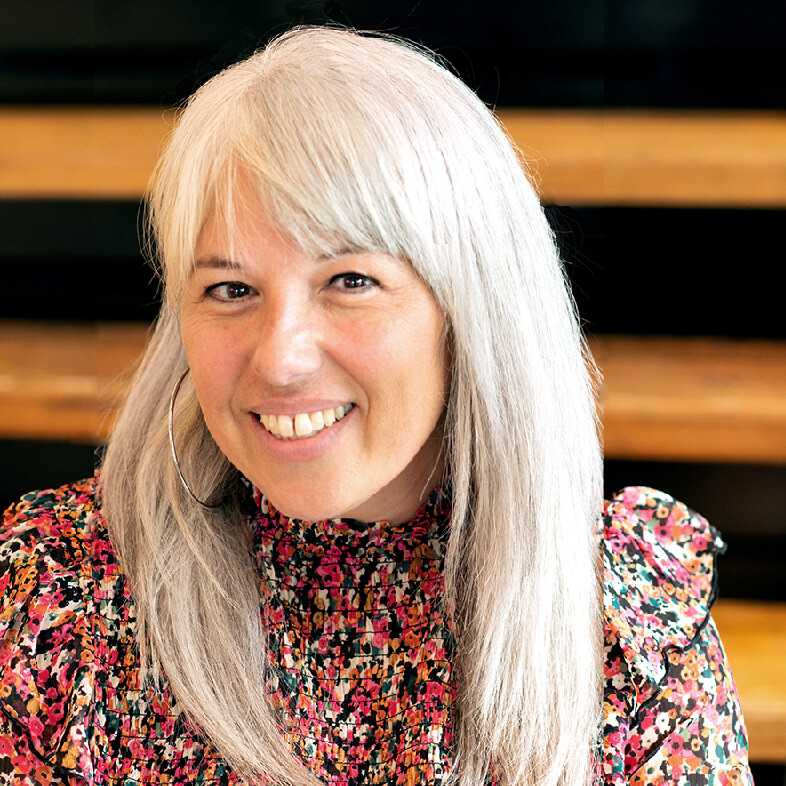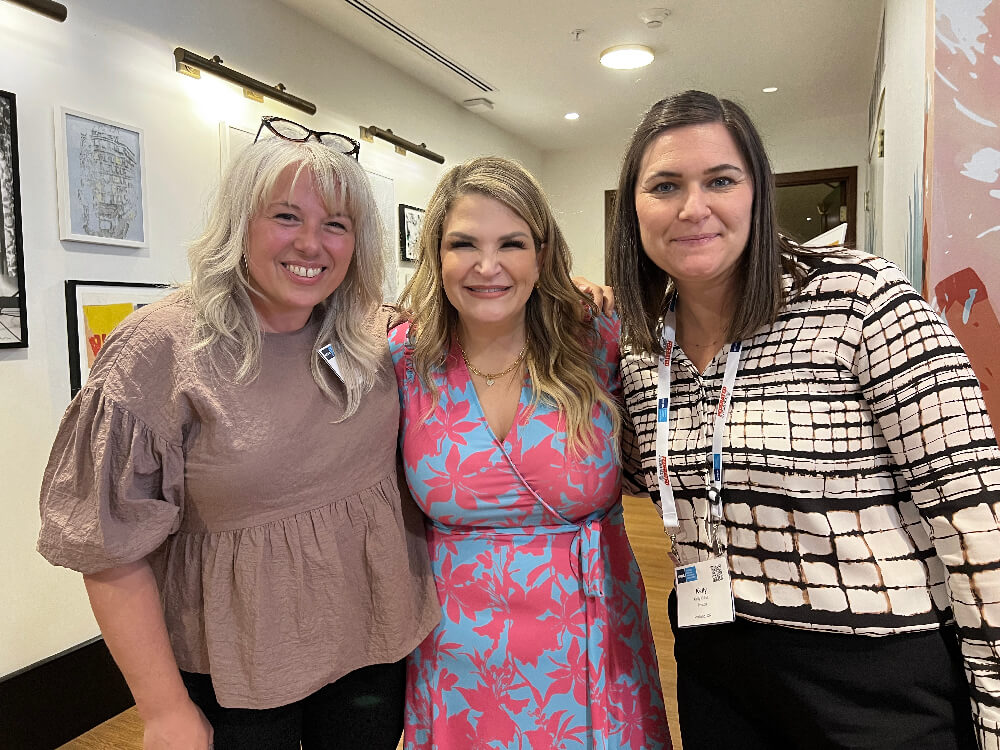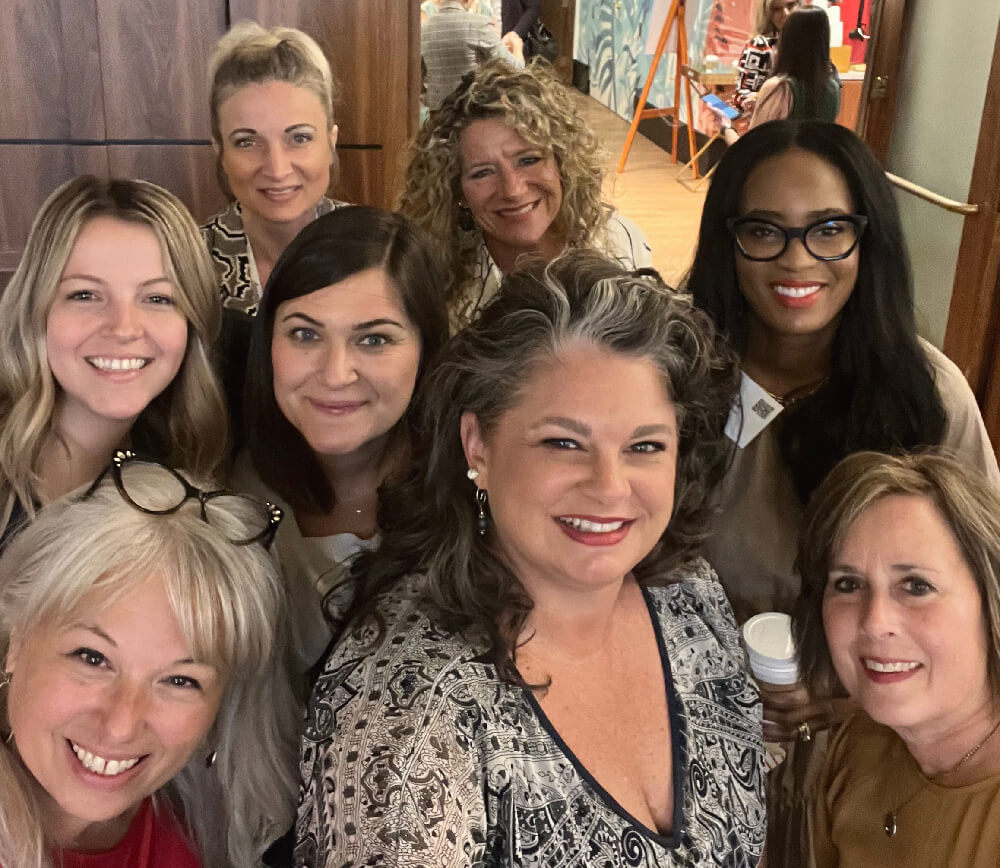When Kelly Kohut and Jenny McClanahan went to the Professional Women’s Conference in Miami Beach
last April, they knew it would be remarkable. As the respective Senior Director of Field Project
Development at Precoa and the Creative Director at @need Marketing, they care deeply about
experiences—so much so that the title of their talk at the conference was “Experience Matters: The
Secret Engine Behind the Most Meaningful Innovations.” Together, they share why the experience
exceeded every expectation.
An Experience That Matters
So many attendees enjoyed an atmosphere of enthusiasm, inspiration, and passion at this year’s
Professional Women’s Conference. What do you think contributed to this?

Kelly
Kohut, Senior Director of Field Project Development

Jenny
McClanahan, Creative Director of @Need Marketing
Kelly: The reason people love the conference and attend
year after year is because it’s an opportunity to make new friends, to learn, and to build a support
system with people who believe strongly in the purpose of funeral service. All credit is due to the
amazing leadership of NFDA and specifically this year's content curation by Melissa Posey Loose. She
wove the thread of connection throughout the agenda of the conference.
Jenny: Melissa really set the tone for the entire
conference. With her opening remarks, you could feel how enthusiastic and genuine and proud she was
to have us all there together. I think she’s the reason the experience felt as rich as it did—from
that point on, it was nothing but camaraderie and respect.
The conference included a range of content related to funeral service, from embalming to preneed
marketing. Which of the talks did attendees find most engaging?
Jenny: The women who attend just want to know how to serve
families effectively, and I think there’s value in listening to every single person and speaker.
Will I ever handle embalming in what I do? No. But in listening to these talks, I better understand
its intricacies and its importance.
Kelly: No one is there just to check off CE credit. Dr.
Jody Carrington’s keynote talk was about the value of human connection, and that’s why people
attend—to connect and because they know all the content will be valuable.
The Biggest Challenge Facing Funeral Service Today
In your own talk, “Experience Matters,” you covered some of the challenges currently facing funeral
service. Can you share more about what these are?
Kelly: Top of mind right now is staffing and making sure
you have enough funeral directors to manage the workload at your funeral home. But the even bigger
challenge is that consumer preferences are changing.
Jenny: The trend is to choose direct disposition instead
of a funeral service, and it’s a trend that’s only increasing. But it’s all too easy to accept this
as a reality that can’t be changed. We thought it was important to dig deeper into the root of the
challenge.
Kelly: The main question we found ourselves asking is how
funeral homes can meet the constantly changing needs of today’s customers. After working with
hundreds of funeral homes, we’ve seen how difficult it can be for them to keep up with these
changes. Not because they can’t, but because too many funeral homes face challenges in their
day-to-day operations and don’t have the time, resources, or support to address these changes as
quickly as they’re happening.
You also shared data about the role religious demographics play in these changes. Can you explain
this connection?
Jenny: There’s a growing group of religious “nones”—not to
be confused with religious nuns—who don’t have any religious affiliation. Many of them are people
who were raised within an organized religion but no longer identify with it.
Kelly: Most of us would agree that as a profession,
funeral service has relied historically on religious institutions to set out what to do when we
honor a loss. So many of our rituals and traditions are rooted in religion, even the structure of
how and when people gather.
Jenny: For religious nones, seeing these set traditions as
the only other option becomes overwhelming and anxiety-inducing, which results in the simpler choice
of ‘doing nothing.’
Kelly: What’s interesting is that two-thirds of the
church-unaffiliated still report being spiritual or religious. So the need for meaning and ceremony
hasn’t necessarily gone down. It’s just that people don’t fully understand where funeral homes fit
into these needs.
How important is it for funeral homes to adjust to this growing demographic?
Kelly: With fewer people tied to religious traditions,
adjusting becomes critical. More and more families are defining funerals for themselves. They don’t
always know that funeral homes can give them the experiences they’re still looking for.
Jenny: A great example to compare is the wedding industry.
Like funerals, weddings were mainly linked with religion. But as that’s changed, people still see
the value in weddings. They’re willing to pony up astronomical sums—the average cost of a wedding in
south Florida is over $51,000—because people want to gather, celebrate together, and share stories.
It’s up to funeral service to build that same value.
Kelly: The only way to do that is to innovate how and when
we communicate that value to families.
What’s the Secret Behind the Most Meaningful Innovations?
On the subject of innovation, you shared several surprising examples. Why do some of the most
meaningful innovations come about so unexpectedly?
Jenny: It’s all about where along the customer journey you
innovate. One example we shared was from Disneyland. Back in 1955, when the park first opened,
people were getting frustrated.
Kelly: Essentially, Disneyland had all these great rides
and sold a lot of tickets, but they had a lot of people waiting in really long lines. So, they
focused on the experience in line and made sure you could see people and interact with the scenery.
Instead of only focusing on the pinnacle moment, they focused on every step of the customer journey.
Why this is so relevant to funeral service is because it’s not just, did the funeral go perfectly?
It’s also how did you make the family feel on the death call? How did the arrangement experience go?
Did you connect with the family authentically and provide support beyond the service?
Jenny: These details are in the hands of funeral directors
in a big way. Every moment at the funeral home is important, down to the smallest detail. There’s a
real opportunity to make the experience meaningful so many will walk away feeling their loved one
was truly honored, that the service or ceremony was reflective of their loved one's character and
painted a picture of their life and those they loved and who loved them. From my own experience –
losing both my mother and father – I can tell you that experiencing meaningful services gave me this
subliminal permission to begin healing.
Kelly: The same is true for preneed. How did it go when
setting the appointment? Were you just trying to get the appointment on the books, or were you
effectively listening to their needs and concerns and helping the family see the value of funeral
service? It’s the experience and the connection that turns families into raving fans. If we can
focus on every step of the customer journey before a family ever sets foot in a funeral home,
families will be wowed.
If we can focus on every step of the customer journey before a family ever sets foot in a
funeral home, families will be wowed.
How to Innovate the Customer Journey
You’ve shared a few of the ways funeral homes can improve consumer experiences in the moments
leading up to a funeral. What are some of the other areas where the customer journey can be
innovated?
Kelly: The most important takeaway is to let your
community know who you are before they need you. There are plenty of people out there who have never
set foot in your funeral home. They may picture a place that is strange or creepy, and it’s up to us
to share the real story. Funeral homes always talk about wanting to be the ones who get the call
when somebody dies. The best way to do this is to create awareness about who you are and what you do
as often as possible. This ensures you are top of mind when the moment arrives when they need you to
help with a loss or a preplanning need.
Jenny: Our talk closely followed a talk about funerals for
children who’ve passed and how to connect with children who attend funerals. It was heavy, hard, and
beautiful for everyone to hear. But it also illustrated an important point about experience. What an
amazing responsibility to create an experience that someone will carry for the rest of their life.
And yet it takes thinking of every customer interaction this way if we’re going to shift how people
see funeral service.
Kelly: To be the first funeral home people think of when
they need you, you need to be connected to the community. Your funeral home can be out at local
community events like parades, supporting local businesses and organizations, and getting creative
about other opportunities that humanize who you are.
Jenny: You have to dig deep and think about what cool
opportunities might need support or sponsorship. You could make your funeral home a Girl Scout
Cookie pickup location, or create an American flag retirement program. I’m also reminded of Charles
F. Snyder Funeral Homes, which has been able to offer their funeral home as a local polling place.
Thousands of people come to the funeral home and interact with staff. On polling days, staff are
handing out water and focusing on connecting with the community.
Kelly: What better way to show who you are as a funeral
director and a funeral home? There are ways to do this outside of events as well. Improving your
marketing or humanizing your website to spotlight funeral directors and staff shows that they’re
just people who care about the community and about helping families.
The Pros of Proactive Marketing
One question you raised was, “What if you could share your story before families ever set foot in
your funeral home?” What are some of the ways funeral homes can do this?
Kelly: Teach people who you are before they need you. Most
funeral homes have preneed programs, and you can turn the preneed experience into a teachable
moment. Families have already made up their minds when they are sitting with you in an arrangement
room, and if they don’t value funeral service, they’ll choose the option that seems easiest. But
with preneed, you can create a connection that builds value and helps shift the perspective about
why funeral service matters.
With preneed, you can create a connection that builds value and helps shift the perspective
about why funeral service matters.
Jenny: It starts with the design and the language you use,
too. Direct disposition is a term coined by the funeral profession. To consumers in a DIY culture,
that sounds like the more streamlined option. People see that and think, ‘I got this. I planned my
own wedding, so why can’t I manage a funeral?’ The biggest challenge to get ahead of is advertising
the right message, one that educates families about everything you can do to help.
How can funeral homes be more proactive about their messaging?
Kelly: Be proactive with preneed marketing. Precoa has
spent years crafting and testing messages that families willingly respond to, and that same care and
attention to detail gets carried through every other step a family takes in their prearrangement
journey. You can improve how you manage the customer relationship as soon as you get a preneed lead.
You can improve the appointment setting experience so the quality is consistently high. Then you can
improve the quality of the preneed appointment itself so that it leaves a lasting impact on
families. Every improvement you make gets you one step closer to creating remarkable experiences.
Jenny: It’s one thing to find opportunities in your
community, and it’s another to get the word out. We focus so much of our attention on nurturing our
partners’ relationships with their communities. It’s issuing press releases about events and
occasions, educating families with blog and social media content, and running campaigns so families
are seeing your funeral home and becoming more familiar with who you are and what you do.
Kelly: Every day is an opportunity to wow someone. It’s a
chance to increase positive word of mouth or decrease it. Funeral homes take this responsibility
seriously, and it’s a responsibility we take seriously at Precoa as well. We want every family to
love and trust the funeral homes we work with.
Creating Opportunities for Connection
More women are entering funeral service than ever before. Why is it so important to foster
opportunities for women in funeral service to connect?
Jenny: Even though mortuary schools are now graduating
higher percentages of women than men, experiences like this conference make a difference. It helps
to have a peer group and people who understand your experience.
Kelly: It’s easy to feel siloed if you’re the only woman
at a funeral home, and I’m encouraged to see more women in leadership year over year. For a young
funeral director who wants to someday own their own funeral home, you have role models here.
What was the best part of the conference for you?

Kelly Kohut of Precoa and Jenny McClanahan of @Need Marketing stand with Dr. Jody Carrington after her speech at the NFDA Professional Women’s Conference.
Kelly: It was so good to be in person again, and there
was a mix of both past attendees and people who were brand new to the experience. But the best part
is probably the content. We all walked away with such valuable lessons that apply to our day-to-day
responsibilities.
Jenny: I loved learning that so many women were there on
scholarship and seeing their connections and the bonds they formed. People get into this business
because they care about people. Every attendee is so engaged.
Would you attend the Professional Women’s Conference again?
Jenny:In a heartbeat. Maybe it was the joy of being
together after not being in person for so long or maybe because I haven’t been to summer camp in 30
years, but I didn’t want it to end. It was a weekend full of connecting, sharing, and learning.
Kelly: Absolutely. I’ve been attending the conference for
eight years running, and I hope to go for as long as it is offered. The content is top-notch, and as
women make more strides in funeral service, this is the coolest group to be able to celebrate that
with.
Kelly Kohut: Kelly Kohut’s talent for business growth blends perfectly with her passion for helping funeral homes connect with more families through preneed. With a degree in marketing and an MBA, she honed her sales and marketing skills in the healthcare industry before deciding to pursue a career with a purpose-driven company. She served as Regional Development Director for the Outlook Group, and she now serves as Senior Director of Field Project Development at Precoa, where she helps build and support lasting partnerships with leading funeral homes.
Jenny McClanahan: Jenny McClanahan’s design expertise can be attributed to natural talent as well as 20+ years at Cox Media managing operations, creatives, and art direction. Now the creative force of @need marketing, she is constantly driving new initiatives and leading the design team with finesse and dedication. She possesses an intuitive sense of how to refine and strengthen a brand, and her work helps forward-thinking funeral homes make a lasting impact in their communities.




